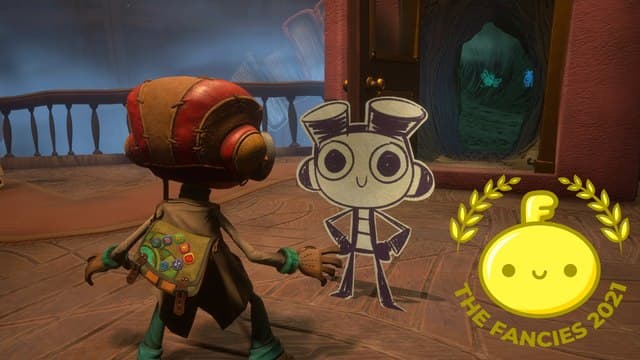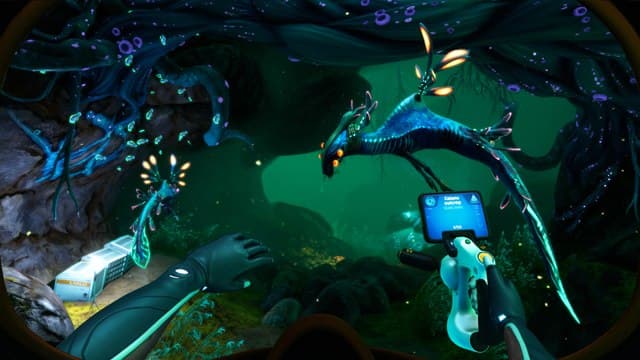Michael Bay. You know his deal, right? He’s the maximalist music video director-turned-action cinema auteur responsible for a handful of canonized action flicks, one good Transformers movie, four unwatchable Transformers movies, one cult classic, and two thrillers about troops that I haven’t seen and you probably haven’t seen either. Bay is famous for trying to make every shot of his movie as epic as possible, whether it depicts a car crash, a phone call, or a parent rocking a baby. At its worst, this can rob a film of any sense of dynamics — nothing pops, because everything’s as visually loud as possible. At its best, it can give you the rush you get from seeing a really cool movie trailer and sustain it for two-plus hours. Bay’s latest, Ambulance, falls into the latter category; it’s a breathless, brainless twisted metal thrill ride that’s simple but never boring.
Cut to the Chase and Then Back to the Chase and Back to the Chase Again
Out-of-work US Marine veteran Will Sharp (Yahya Abdul-Mateen II, The Matrix Resurrections) needs a quarter-million dollars fast so he can pay for a life-saving experimental surgery for his wife, Amy (Moses Ingram, The Tragedy of Macbeth). He goes to see his rich criminal brother Danny (Jake Gyllenhaal, Nightcrawler) hoping for a loan. Instead, Danny prods Will into joining him in a huge bank heist he’s been planning and they gotta leave right now, actually, let’s go rob a bank like right this second. Flanked by a crew of cartoonish, entirely expendable flunkies, Danny and Will set out to steal $23 million in cash. By minute 20 of the film, the heist has not only occurred but gone totally sideways, and the Sharp Brothers are leading the LAPD and on a high-speed chase in a stolen ambulance with a hard-headed EMT and a dying cop riding in back. Most of the rest of the film is essentially one long car chase whose intensity spikes and ebbs multiple times to make room for plot development and (limited) character exploration.
We learn most of what we need to know about each of the three principals in the few minutes before the chase begins. Danny thinks he’s a smooth operator, but is actually wound tight and unpredictable. He frequently extols his love for his brother, but he’s so self-interested that it’s hard to tell if he means it or if he’s just pushing Will’s buttons to get what he wants. Gyllenhaal excels at playing phonies and psychos, and he makes Danny equal parts funny and menacing. He could snap at any moment, but in what direction? Will is a good man in a desperate situation, and while he’s acquired a number of skills as both a soldier and a reformed criminal, he’s not as single-minded or mechanical as Danny. He bends under pressure and makes some ugly mistakes that complicate the plot in interesting ways. Gyllenhaal and Abdul-Matteen’s fraternal chemistry is not immediately apparent — it takes a while for the plot to slow down enough to let us just sit with the two of them for a bit and understand their dynamic — but that may be the point. Other characters are always challenging whether or not they’re “real” brothers, perhaps we’re also meant to, at first.
Eiza González portrays Cam, an expert EMT who “can keep anyone alive for 20 minutes” but maintains a professional detachment from her patients and just about everyone else in her life. She’s accustomed to managing incredibly high pressure scenarios, but she’s a sprinter, not a marathon runner. She likes knowing that her responsibility to her patients ends when they leave her truck and that what happens to them after that is none of her business. Now, she’s stuck maintaining a shot cop for hours on end and forced to build a rapport with her captors out of pure self-preservation. Of the leads, Cam comes the closest to having a complete character arc and even so there’s not much there, but González is a likable actor and a little charisma goes a long way in a movie that’s so nonstop tense that you’re basically trauma-bonding with the characters anyway.
The rest of the (many, many) characters each have one specific utility to the audience and a single cartoonish quirk. Garret Dillahunt (Fear the Walking Dead) plays a police captain with a weird high school gym coach energy and a giant dog named Nitro. His job is to explain the strategy of the car chase to the cool but rude drone operator (Olivia Stambouliah), who in turn explains all the drone stuff. Keir O’Donnell (Season Two of Fargo) portrays his FBI counterpart, a gay liberal intellectual who — in a surprising twist for a Bay feature — is a valuable contributor to the police action rather than a straw man to be clowned upon by the jocks. He’s been studying Danny for years and knows how his mind works, which provides some context on our leads. Rapper/pro wrestling enthusiast Wale provides comic relief as Danny’s confused henchman, whose bit is having no idea what movie he’s in. These characters all have names but you will not remember them, except that cartel-connected crime lord — whose role is to provide an independent threat to cops and robbers alike — is referred to only as “Papi.” (He’s played by A Rodriguez of Longmire.) There are a half-dozen other characters with gimmicks in place of personalities, and that’s fine because we cut back and forth between them so quickly that there’s no time to get further invested in them anyway. No one is compelling, but everyone is entertaining, which turns out to be sufficient in a movie whose real star is the chase itself.

Have You Ever Seen a Movie Do a Barrel Roll Before?
A lot of filmmakers have taken on smaller, leaner projects during the COVID-19 outbreak, and Ambulance is Michael Bay’s version of “going small.” It was produced for a mere $40 million under strict pandemic safety protocols, and every penny of the budget appears to have been spent on cars and explosives. And, frankly, thank God. Ambulance is 70% car chase, and if there were more than a handful of shots with apparent visual effects, there would be absolutely no reason to watch this movie. Instead, it’s a smorgasbord of practical stunt driving with a real sense of danger throughout. Cars are crashed, flipped, blown up, driven off cliffs, and it all looks pretty as hell, lovingly photographed by Bay and cinematographer Roberto De Angelis. There’s a full hour of car action in this film, plus another twenty minutes of gunfighting, and it is never boring or repetitive. There is always a new place to put the camera and observe (or participate in) the mechanical carnage. In contrast to his Transformers movies, it’s also very easy to follow the continuity of the action.
Michael Bay loves to whip his camera around on dollies, cranes, and helicopters, but for Ambulance he’s brought on a team of drone stunt pilots to swoop around the action at high speed, giving the audience a first-person view of their hairpin turns, dives, and barrel rolls. This means that even establishing shots of the city have a frantic, dizzying pace. Some of the appeal is definitely novelty — it is wild to see this sort of photography on a large format screen — but the skill on display is undeniably impressive. The cinematic stunt show isn’t a distraction from the movie, it is the movie. If you’re not here to witness marvelous feats of agility from cars and cameras alike, then you’ve come to the wrong place.
Bay also treats small spaces as if they’re big spaces, zipping the camera around the tight confines of the ambulance and keeping the setting exciting and fresh. Again, this is done via his tried and true “every shot a money shot” style and he switches back and forth between shaky handheld and smooth mechanical movement pretty much on a whim. The edits are fast, fast, fast, and the pace is nearly always in the red, but I think that this style works better in a cramped space than it does in some of his larger-scale work. Bay’s maximalism is what makes him special, it’s the reason you either love him or hate him, but Ambulance forces him to hold back just a hair and I think the work benefits from those limitations.

Old Bay Seasoning
Ambulance is a near-constant adrenaline rush, but the tension is cut with comic relief that crops up at seemingly random points throughout the film. Some of the bits are real groaners pulled from the usual Bay Comedy Grab-Bag: People yelling on the phone; broad ethnic stereotypes; bickering couples; conventionally unattractive people talking about sex. But, there are a few genuinely good jokes in the movie, and one bit shared between Gyllenhaal and Abdul-Mateen that had me full-on howling. Sometimes it seems as if Bay is lampooning his own stylistic signatures, like when he whirls the camera dramatically around two nerdy doctors on a golf course as they try to walk Cam through a complicated surgery. But, then, the camera is always whirling dramatically.
Some of the levity in Ambulance comes from simple notes of “guys being dudes” energy. If Ambulance is about anything, it’s about the bond between brothers Will and Danny, and while it’s not the richest relationship in cinematic history, it is occasionally very cute. Like so many siblings, these two adult men tend to regress into childhood in each others’ presence. There’s also a second important male friendship between boyish rookie cop Zach (Jackson White, The Space Between) and his partner Mark (Cedric Sanders, Future Man) that is less prominent but more intense. There are very few female characters and they never interact, but Bay’s characteristic ogling gaze is absent. Cam gets the same kind badass hero shots as Will and Danny, and neither the camera nor the characters are ever leering. Hollywood in general may have overcorrected from its former hypersexuality, but Bay is one filmmaker who really needed to Cut It Out and he’s better off having done so.
That said, I certainly don’t think Bay’s politics are getting any better. Michael Bay is one of those filmmakers who insists that he’s apolitical, but it’s more like he frames the status quo as politically neutral, which is really a conservative position. Will Sharp is forced into committing a crime by a lack of social safety net and the movie is always on his side about it, but it’s never really against the conditions that caused his situation. Our protagonists are on the run from the law, but the cops are still painted as noble and heroic. The police are trying to keep the hostages alive and the Sharps don’t want to kill anyone if they don’t have to, so when the story needs a threat that’s not so gunshy, that’s when a Mexican-American crime family comes into play. I personally don’t read a lot of malice in it, but your mileage may vary. It feels to me more like Bay and/or screenwriter Chris Fedak reached a point in the story and said, “It’s LA and we need some gangsters, so, Mexicans, right?” and then just moved on without really thinking about the optics.
In general, I find Ambulance to be a lot less mean than most of Bay’s films. The characters are thin, but they’re also likable and that’s a rarity in a Bay picture. It’s missing the sour taste of misanthropy that often spoils the Bayhem broth. I walked out of Ambulance thinking “this was a better-than-average average Michael Bay movie,” but looking back at his filmography after the fact, I’m starting to think this might be one of the best Michael Bay movies. And that’s really the measuring stick you have to use here. There are good movies, there are bad movies, and then there are Michael Bay movies, which are way the fuck over there in a different pile. If Bay has never been your thing, Ambulance is unlikely to change your mind. But if you like “more is more” action filmmaking, big loud gunfights, and ten-car pileups, then put the siren on and head out to see this as fast as possible.


